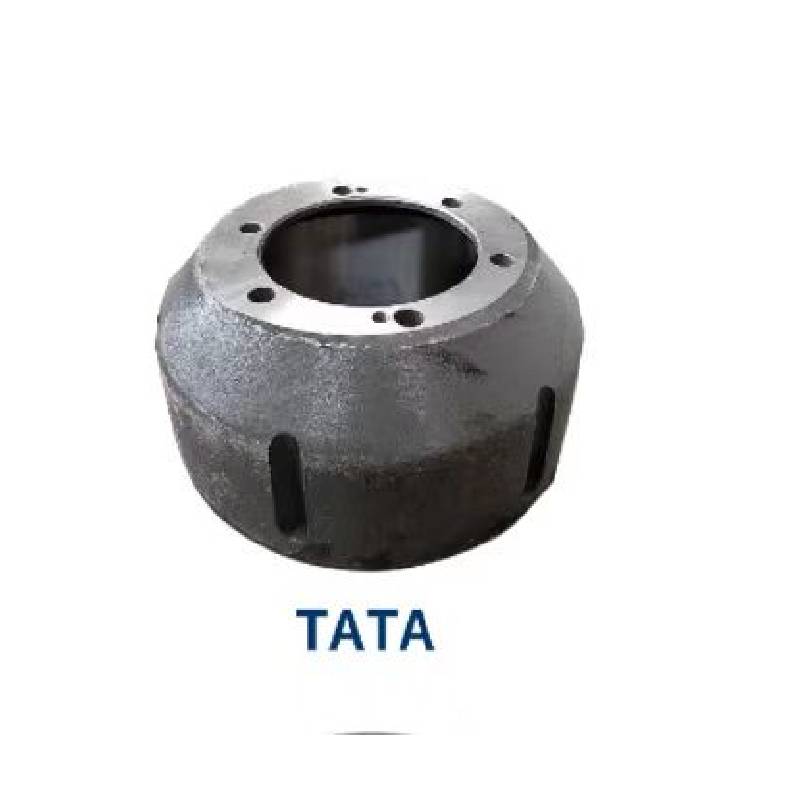Dec . 14, 2024 09:51 Back to list
When Should You Change Trailer Brake Drums for Optimal Safety and Performance
When to Replace Trailer Brake Drums
Maintaining a trailer's braking system is crucial for safety and performance. Among the essential components are the brake drums, which play a vital role in the overall functioning of the trailer's brakes. Understanding when to replace these components can ensure not only your safety on the road but also the longevity of your trailer. Below are some key indicators and guidelines on when to consider replacing trailer brake drums.
Signs of Wear and Tear
1. Thickness Measurement Brake drums have a minimum thickness specification set by the manufacturer. Over time, with repeated use, the friction material wears down the drum, leading to a decrease in its thickness. Regularly measuring the drum's thickness can help you determine if it’s wearing thin. If you find the thickness is near or below the manufacturer's specification, it’s time for a replacement.
2. Cracks and Damage Inspect the brake drums for any signs of cracks, chips, or other physical damage. Cracks often develop due to excessive heat from heavy braking or the natural fatigue of the metal. Any visible damage can compromise the integrity of the drum and must be replaced immediately.
3. Heat Scorching Overheating can cause the brake drums to become discolored, often showing a blue or bluish hue. If you notice this discoloration during your regular checks, it indicates that the drums have been subjected to excessive heat, which can affect their performance and reliability.
4. Heavy Vibration If you experience heavy vibrations when braking, it could indicate that the brake drums are out of round or unevenly worn. This condition can not only reduce braking efficiency but also lead to further wear in other braking components. If you notice significant vibrations, it may be time to inspect and potentially replace the brake drums.
5. Poor Braking Performance A clear sign that something is amiss with your trailer’s braking system is poor braking performance. If your trailer doesn’t stop as quickly as it used to or if the brakes feel spongy or unresponsive, it could be that the brake drums are worn out and need replacing.
when to replace trailer brake drums

Regular Maintenance Schedule
Preemptive maintenance can save you from unexpected braking issues. It’s advisable to include brake inspections as part of your regular trailer maintenance routines. Depending on the usage and the weight of your trailer, a good rule of thumb is to inspect the brake drums at least once a year. However, if you frequently tow heavy loads or travel long distances, you may need to inspect them more often.
Choosing the Right Replacement
When it comes time to replace your trailer brake drums, ensure you select the appropriate drums for your specific make and model. It’s essential to consult your trailer's owner manual or a knowledgeable mechanic to find compatible replacement parts. Using the wrong size or type can lead to performance issues and may jeopardize your safety while towing.
Professional Inspection
If you are uncertain about the condition of your trailer brake drums, it’s advisable to seek a professional inspection. Certified mechanics have not only the expertise but also the tools necessary to assess the brake system's overall condition accurately. They can provide insights into whether the drums should be replaced or if other components within the braking system may also need attention.
Conclusion
Replacing trailer brake drums is a critical aspect of trailer maintenance that shouldn't be overlooked. Recognizing the signs of wear and adhering to a regular maintenance schedule can ensure your trailer stops safely and effectively. Remember, your safety and that of those around you depend on the reliable performance of your trailer's braking system. Regularly inspect the brake drums, and when in doubt, seek professional advice to keep your trailer in optimal condition. Taking these proactive steps will not only enhance your safety on the road but also extend the lifespan of your trailer.
-
Scania Brake Drums: OEM Quality for Optimal Safety & Durability
NewsAug.16,2025
-
R.V.I: Advanced Remote Visual Inspection for Precision
NewsAug.15,2025
-
Discover HYUNDA: Innovative Vehicles, Equipment & Solutions
NewsAug.14,2025
-
R.V.I: Unlock Advanced Insights & Real-time Performance
NewsAug.13,2025
-
Kamaz Brake Drum: Durable & Reliable for Heavy Duty Trucks
NewsAug.12,2025
-
Heavy Duty Iveco Brake Drum - Premium Quality & Safety
NewsAug.11,2025
